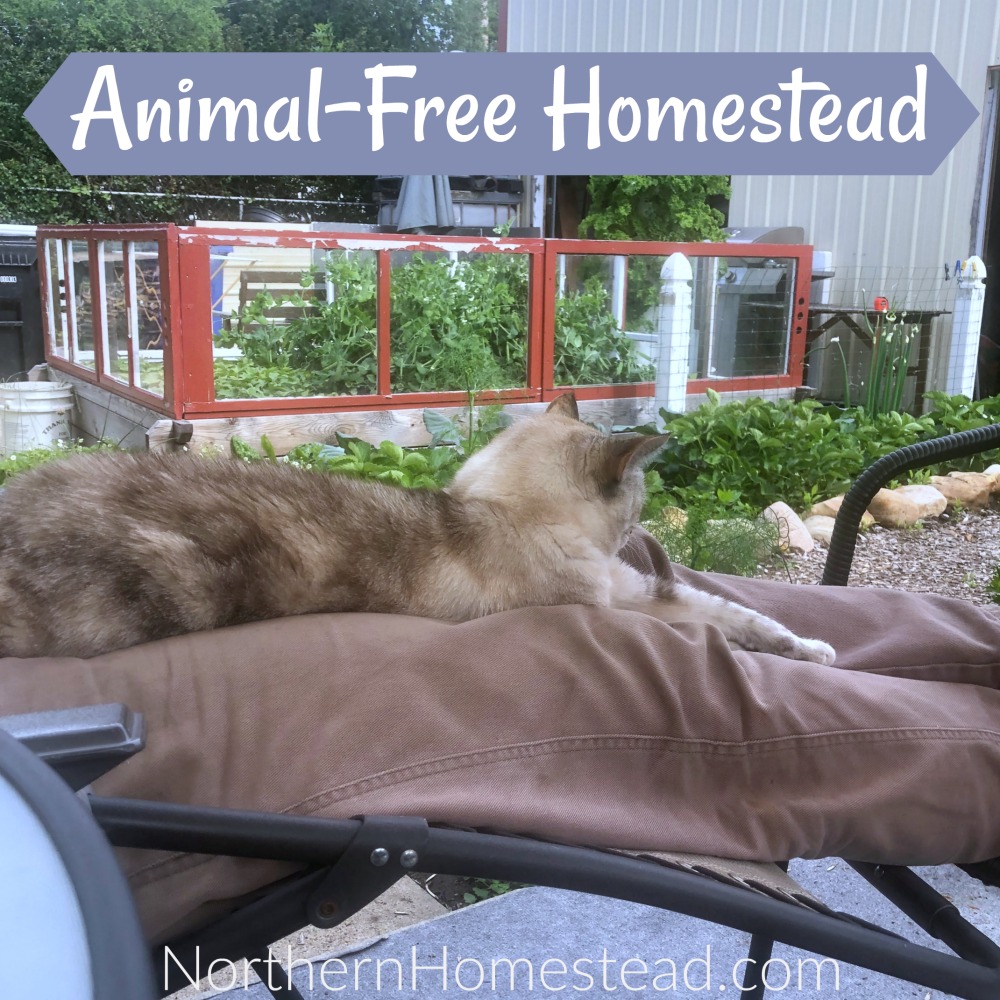
Update: This animal-free homestead article was written 2 and a half years ago (2019) a bit over a year after we started our journey on a plant-based diet. I call it a journey since we had no idea where it would take us. We thought it was just about what was on our plate to eat. Soon we realized it was a lot more.
More than anything we needed a shift in our consciousness. That shift is happening very gradually and I feel we have not arrived yet.
We changed our diet purely for health reasons. We had to decide between chicken and chickpeas in our dish to see what is better for our bodies. We did not see any differences in those two choices at the time, they were just different food choices, that’s it.
We had no environmental, and certainly not animal rights motivations for our new plant-based diet.
To our surprise, it was fairly easy to change our diet. We loved the new foods that we were implementing and loved how we felt with them. That was stage one.
This animal-free homestead article leads us to stage two. Not only was our new diet simple and delicious, but we also loved our new lifestyle. Feeling good and having less work to do for our food supply. That’s what this article is about.
That our photo depicting an animal-free lifestyle includes a carnivorous cat, have some found a bit ironic. That was on purpose though, we wanted to show that we are not against animals, and we are not judging anyone for their food choices. We are just sharing the benefits of our lifestyle for us.
Farm animal-free homestead
Technically we are not an animal-free homestead, we have always had some pets. It started with our daughter wanting a bunny. Over the years we have had several bunnies, a guinea pig, a hamster, and several cats. But we did not butcher or eat them.
The so-called real homesteading animals that we have raised were chickens before we gave up on backyard chickens and became farm-animal-free. Now we are down to just having a cute cat. By the way, the cat in the picture is intentional, to show that we can have animals without eating them.
I was listening to the book Farm City, and really enjoying it for the writing style and the simple story. I also loved the fact that Novella Carpenter, the author, was growing her own food right in the city. The book also includes a lot of animal husbandry and yes, even butchering details. Since I grew up on something like her city farm, just much more urban and homey, I could relate to some of it. Most of all I rejoiced in the fact that I myself do not have to go through so much trouble to get food on my table. More about it later.
The history of homesteader’s food choices
The Homestead Act (1862) that set in motion a program of public land grants to small farmers was not the start of people growing and raising their food. All over the world, people grew and raised different foods for many generations. Before there was communal or commercial food, everyone was in some way a homesteader who made sure to get food on the table by making it.
HOMESTEADING IS NOT DEFINED BY WHERE SOMEONE LIVES, SUCH AS THE CITY OR THE COUNTRY, BUT BY THE LIFESTYLE CHOICES THEY MAKE.
From Homegrown and Handmade
Wherever meat played a big role in people’s diet, animals were hunted or raised. In places where meat played a very insignificant role, vegetables and legumes were grown.
The old traditions of the eastern world were vegetarians. We associate health and longevity with them.
The majority of the western world was heavy on meat, so homesteaders raised animals for food. Most of our ancestors did. I grew up on a homestead where farm animals played a big role. I share more about it in my post: How people lived simple yesterday.
Our ancestors raised animals for food because they wanted to. And they often wanted, because it was socially the thing to do. The traditional food that is socially accepted played and still does play a big role.
Our parents and grandparents who lived through the world wars knew how to survive without meat. Even now we are often told that we eat as they did in the lean years, and they admit that they were very healthy during those years. Of course, we as the generation after the war have no relation to it.
The same is true for whole-grain products. Whole grain bread was everyday bread, white bread was desired and not so often available.
It is not true that all homesteaders back in the day raised animals for meat and ate whole-grain bread. Often the poorer ate beans and whole grains and were strong and healthy. The better off had meat and white bread, and servants to do the work for them.
Homesteaders of today
The young generation of homesteaders in the modern ‘back to the land’ movement often has no relation to these old historical patterns. Most of us grew up eating meat and not even thinking about it. Many, like me, grew up raising animals on the homestead or farm.
There was never a point in my life where I decided to be an omnivore. I was it before I could even speak. Most likely it is the same for you.
I even remember hiding in a closet while our family’s pig was being slaughtered, so I would not hear the heartbreaking sound of that dying animal. But I do not remember making any negative connections between that suffering animal and the food at the pig slaughtering feast later that night. The constant slaughtering on our homestead had dulled my feelings.
Homesteaders who have not grown up so close to raising animals for food have an even more distant connection to it.
Many nowadays homesteaders and farmers face the death of an animal for the first time while butchering their own. The book Farm City, which I just finished listening to, describes it in the most colorful words. Like Novella Carpenter, many homesteaders and farmers who want to connect to their food, start with little to no knowledge of what it takes.
Rethinking homesteading food choices
If a homesteader decides to raise animals because he or she eats meat, that in itself is a noble task. After all, that’s what homesteading is about, to care for own needs and in this case food.
Homesteaders in the past often made their food choices relating to social norms. Homesteaders of today are often misled to believe that butchering animals is just a must-do part of homesteading.
There must be a better reason for raising or not raising animals for food.
Today our food choice does not have to be according to the social norm of being poor or rich, “in” or “out”. In a day and age where food is easily accessible to most of us, we can choose what nourishes our bodies.
My mother-in-law who grew up on beans and whole-grain, remembers that they were healthy back then. They had healthy teeth and felt good overall. Why did they not stick to that diet? Simply because it was the poor man’s diet during the lean years. Now they can afford better. They also can afford all the high blood pressure and other illnesses and medications that go hand in hand with the “better” diet.
There was never a time on our planet earth where information to make smart decisions was so easily available. We also are free to make choices without being excommunicated from the society we live in, except of course if we are part of some radical group.
For us being a farm animal-free homestead feels freeing and empowering. After we informed ourselves on what is best for us, we had the freedom to decide. We eat plant-based by choice not by following any radical movement.
Nutritional Facts is a good place to find the latest updates on what science is saying about our favorite foods to help us make the healthiest choices for ourselves and our families.
Being an animal-free homestead
Being an animal-free homestead is great. We grow a lot of our food ourselves. Read more about how much food can an urban homestead grow for the winter. Since we are also an urban homestead and live in a cold climate we can’t possibly grow everything we eat. But everything we eat is grown.
Growing up on my parents’ homestead, we would bring in loads and loads of feed for the animals. Humans don’t need nearly as much food as a pig does in its short lifespan. Nor do we need as much grain as chickens do for the eggs they lay. And don’t get me started on the feed for a cow. Just storage for all the hay took up a space bigger than our greenhouse today. My mom often complained that animal feed would consume all our money.
The nuts, seeds, and legumes, which replace the animal products in our diet don’t need large storage space. Read more on what we eat and store in our plant-based pantry.
The best part is, that we can store our nuts, seeds, and legumes in our pantry and not in the stable, and we don’t have to go check on them twice a day in any weather. They don’t need water when it’s -40 and any water just freezes over in minutes, nor do they make a mess that needs to be cleaned out.
Meal preparation is not a bloody affair anymore, nor do leftovers spoil within hours.
We love our animal-free homestead lifestyle.
Historically Helen and Scott Nearing are the great-grandparents of the back-to-the-land movement, and they also were an animal-free homestead back in 1932. “The Good Life” is an interesting read for lovers of simple, natural, and handmade life. Another book is Helen’s cookbook “Simple Food for The Good Life” … with recipes for a vegetarian/vegan diet.
Our farm animal-free homestead nourishes well our body and soul. It is a simple, comfortable, and satisfying lifestyle.
I bet if more homesteaders knew how good it is, they would become plant-based too.
After reading this you might be curious about where we are at now.
“Once we stopped eating meat, we noticed a change inside of us. A love for all creatures that we share this planet earth with arose. It was often and still is overwhelming and very beautiful.
We changed our diet and the diet changed us. I share a bit more about it in our article Why we are not prepping. You can head over and read more if you want.
There is still more to learn. Animals are living beings that play an important part in our ecosystem and maybe even bigger in our evolution. We are on a journey that at its core is not about food, and we are excited to see where it leads us.
We invite you to subscribe to Northern Homestead and follow us on Instagram, Facebook, or Pinterest for the latest update.
More posts you might enjoy
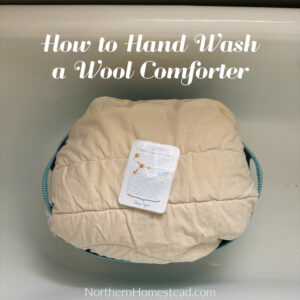
How to Hand Wash a Wool Comforter
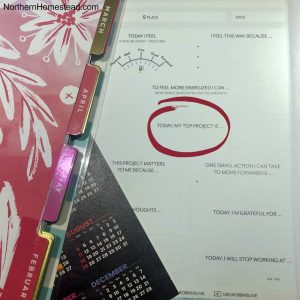
Making Progress on One Important Thing a Day
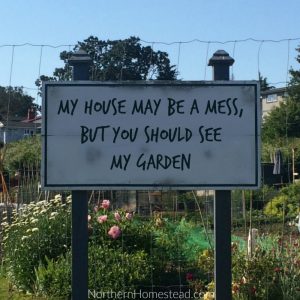
Implement the FlyLady System to Support Homesteading
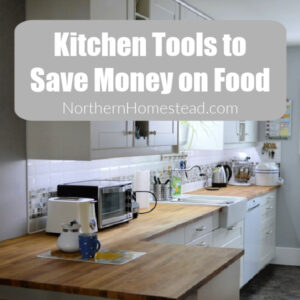
5 Kitchen Tools to Save Money on Food

DIY and Low-Cost Windows and Doors Insulation Options
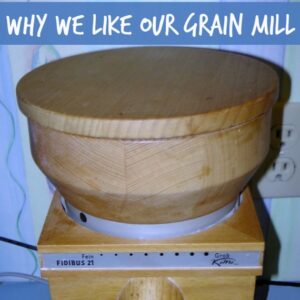
Why We Would Recommend a KoMo Fidibus Grain Mill
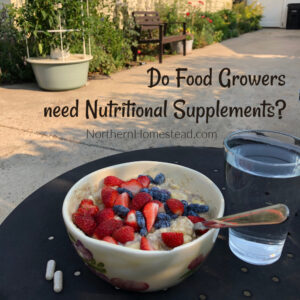
Do food growers need nutritional supplements?
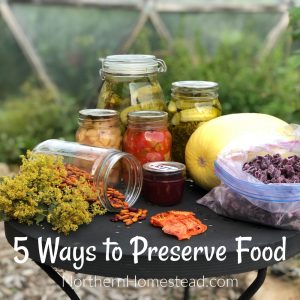
5 Ways to Preserve Vegetables, Fruits, and Herbs

Heating your Home with a Wood Stove in Town
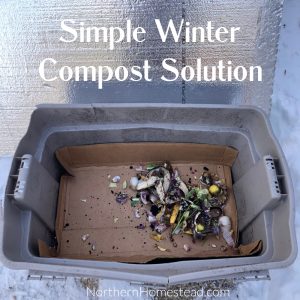

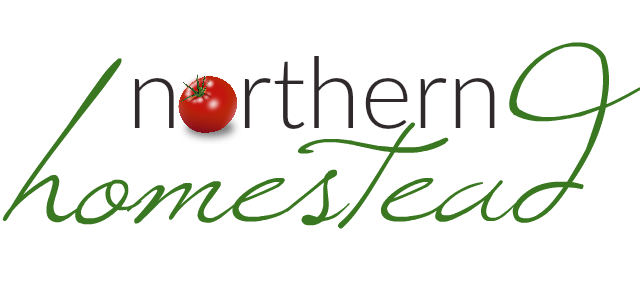
In 1972 when Anna Thomas released her first cookbook called The Vegetarian Epicure she started her Introduction page with (Quote) “Good food is a celebration of life, and it seems absurd to me that in celebrating life we should take life.” (End Quote) Although I’m not fully vegetarian I’ve gotten to the point where I do not consume “bovine” red meat at all, but on rare occasion I do have fish, chicken or turkey but I keep it to small amounts. Losing my gallbladder really changed my digestion abilities and its become more of a challenge as I age. Anna Thomas also points out that milk & eggs are “gifts” from animals, it doesn’t cost their life to give this, so I still indulge in eggs, cheese and some non-fat milk. After reading Barbara Kingsolver’s book “Animal, Vegetable, Miracle” I decided that my garden would also be void of animal manures, relying only on organic plant-based compost/verma-composting. Everything needed for this is now supplied by the garden life itself. It’s amazing how healthy my garden plants are using only this method. I must admit that I still do till some of my soil, it would be impossible to harvest my potatoes otherwise! Thank you for your inspiration on this pathway!
Love that quote from Anna Thomas. There is so much plant-based food that taking life for food is completely not needed. Interesting to hear about your garden experience.
I really appreciate this article, for it’s support of vegan or vegetarian homesteading. However, reading that food choice is no longer tied to being rich or poor and that food is easily accessible to most of us. I guess I don’t know about “most”, but sitting here hungry and unsure if I will or will not be able to buy any food this month, that really hurt. Cost is the #1 factor in determining what I will eat, and if I cannot buy food, I eat whatever I can beg, whether I like it and whether it is reasonably healthy, or not.
I suppose if 51% of people are food secure, that is a true statement, but a whole lot of us are not, and that if a person relies on County or State data for that, one will be relying on the claims made by agencies and organizations that may or may not be true. A lot of programs, resources, and/or benefits that exist on paper, such as grant applications or the phone book, do not exist and/or are not accessible, on the ground.
Not to detract from the otherwise good article, but just a request that the fact that many, even if not most, people are food insecure be considered and reflected in the future.
Thank you!
So sorry Reyna for your struggle. I was not talking about personal food availability, but general. At least in the western world, any food supplying place, market or grocery store, caries animal products, and plant-based products equally. It is not more difficult or socially not acceptable to get one or the other. If a person has no means to get that available food, is a different story.
One of the reasons we write this blog and teach how to grow food with land or with no land is to make food more available to everyone. We started growing food because we needed food. Hope you too can find a way to support and secure your food availability.
Lovely post, we are also a plant based, no animal slaughtering homestead. I’m also a minimalist and enjoy the freedom of being intentional with every choice we make. We’ve chosen to raise chickens for eggs and the enjoyment, have bees for our own honey and have a thriving garden. Our goal is simply to be as self reliant as possible. Simple eating is healthy and delicious. Thanks for the good read!
You worded it well: – no animal slaughtering homestead. Everyone has a free choice though.
Hello,
I’ve been vegan for over a year now and am very happy with it. I found your page by googling vegan homesteading, as that is my goal – I’ve homesteaded with animals (chickens, goats), and, like you, do not want to be responsible for any more animal death. Simply put, it is a choice. Is it the best diet for the human body? Maybe not, who really knows, but as a Registered Nurse I read medical journals for fun, and the more I read about it, the better it is. Bottom line, I just don’t want to be the reason any more pain is inflicted on an animal. Eggs, milk, even honey, are not gifts from animals, they are not intended for us. My conclusion is that none of us are going to get out of here alive; if I can have less death on my conscience, that’s what I’ll shoot for.
It’s 3 years for us now, and we have not looked back just yet ;). It is so simple to be plant-based and grow what we can grow in our garden. Wishing you all the best for your homesteading goals.
I have raised animals for food since I can remember. Along side fruit trees, grape Vines, and a substantial vegetable garden. I never realized until I was much older how a lot of farm animals suffer through their death. My parents never sheltered me from it, and always taught me that since we had caged the animals, put them in pens and taken away their freedom, that it was our responsibility to make sure they had a happy and healthy life, with plenty of sunshine and fresh air, and it was our duty to make their death quick and painless when the time came.
Several years ago I decided that my children and I would go to a plant-based lifestyle. So we sold off the goats, gave the cow to a friend who I knew would take good care of her, but we still have chickens for insect control. We do occasionally eat some eggs, but mostly those get fed to the cats. I personally have chosen a plant-based lifestyle for reasons of health, because I never had any trauma associated with the butchering of our own animals. Their entire life they were treated almost as good as our pets, and when the time came to stock the freezer, there was no prolonged process, no pain. It was always instantaneous.
The longer I have gone without butchering animals every year, the more difficult I find the idea of picking the practice back up. But as someone who raised animals for meat for most of my life when I consistently hear about animals suffering through a prolonged death, I always get angry and defensive, because while I don’t do that anymore, I’ve always found it irresponsible to allow an animal that you have raised and cared for to suffer for any reason.
Thank you for sharing your experience, Kasey. Happy to hear it was positive. I did not write this article to judge anyone, but to encourage them to look into an alternative. We too changed our diet for health reasons. Only after a while, I noticed all the other benefits of a farm-animal-free homestead.
I have a question, how self sufficient are you as an animal free homesteader? My family and I have been plant based for almost 3 years now but I’d love to become more self sufficient especially in these times. Whole grains and legumes are the big calorie and protein heavy hitters for us but that seems a difficult concept to grow enough of that to sustain my family for a year. Sure we grow fresh lettuce, tomatoes, squash and the like but those aren’t full meals. My grocery shopping still consists of staples though, rice, pasta, whole grain bread, soy milk, and beans. Any ideas on how to become more self sufficient with those things without owning tens of acres and running a huge farm? There aren’t many animal free/vegan homesteaders so information is scarce.
For us, being an urban homestead, it makes no difference if we would buy meat, or now we are buying beans, except beans are much cheaper. However, if you have some land, (and we are in the process of building our garden in the country), it does take a lot less space to grow beans vs raise animals. We did a trial on chickpeas that you can check out. Dry beans are even easier. Most small homesteads that sound so self-sufficient, actually buy in feed. So it ends up being a home-raised chicken that was raised on bought feed, hmm. But we are all free to do what we want to do.
Hi Anna I just wanted to say “hi” as I am so glad to meet another plant-based Canadian homesteader! I haven’t read this whole article but really love it – honest and kind – I hope many people get a chance to read it! You mentioned “Historically Helen and Scott Nearing are the great-grandparents of the back-to-the-land movement, and they also were an animal-free homestead back in 1932. “The Good Life” is an interesting read for lovers of simple, natural, and handmade life. Another book is Helen’s cookbook “Simple Food for The Good Life” … with recipes for a vegetarian/vegan diet. ”
I did not know this! I’ve been plant-based for a long time but hadn’t found others doing likewise so am really glad to meet you. Might you have a youtube channel where we can follow you? Wishing you all the best .
Welcome Trish, glad you found this article helpful. We do have a youtube channel, but do not post very often.